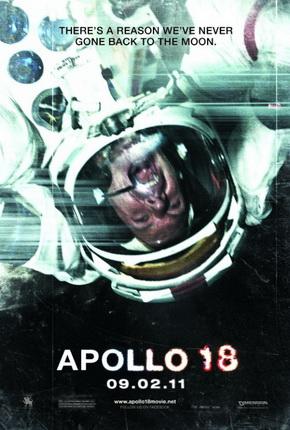Gonzalo López-Gallego, director of the award winning film, “El Rey de la Montaña,” takes one giant leap for international directors with his sci-fi, horror flick “Apollo 18.”
The vintage charm of the film’s stars, Lloyd Owen, of “The Young Indiana Jones Chronicles,” and Warren Christie, of “Alphas,” made the film blast off at its commencement.
These could be breakthrough performances for the television veterans traversing into alien territory.
The film takes place in 1974, where the three American astronauts are sent to the moon after the cancellation of the Apollo 18 mission.
Their top-secret mission is to collect rock samples and set up surveillance cameras to monitor any international weapons activity.
When they find a dead cosmonaut and a Soviet Lander, Nathan Walker and Ben Anderson, played by Owen and Christie respectively, grow suspicious of the reasons they have been sent to the moon.
López-Gallego’s attempt to exploit an American obsession with conspiracy theories and governmental corruption fell flat in its marketing.
The film, however, excelled in communicating its main theme, fear of the unknown, whether it be extra-terrestrials, Russian cosmonauts, or exploring new worlds or concepts.
The film is shot like “The Blair Witch Project” and “Paranormal Activity,” but the surveillance cameras were motivated by the story. Because it was portrayed as actual NASA footage, the story had to maintain a façade of truth.
This weakness held back the opportunity for true emotional depth. Had this movie been approached as fiction, Ben could have been the catalyst for action, strengthening his character.
Audiences experience cinematic bliss when a protagonist overcomes unbelievable odds through action. Important values are conveyed through the decisions that characters make. “Apollo 18” leads with circumstance, forcing the protagonist to react, rather than make a choice.
When a character crosses into unfamiliar territory, they are fearful of their new surroundings. Having the moon play a more powerful role could have played this theme more strongly also.
First time feature film writer, Brian Miller, has a refreshing understanding of story structure, which redeems any faults. Finally, “Apollo 18,” despite of its shortcomings, it’s better than expected.





































































